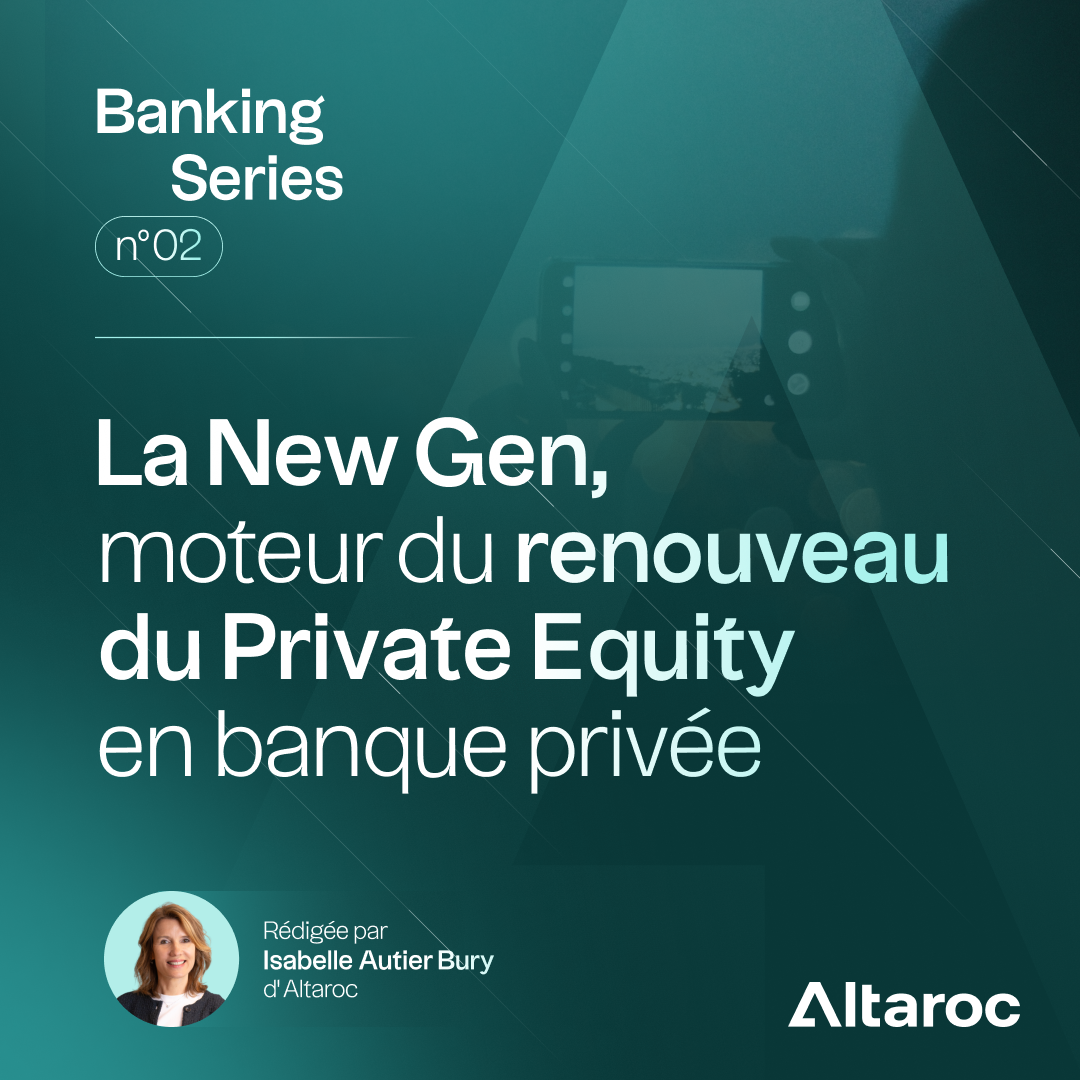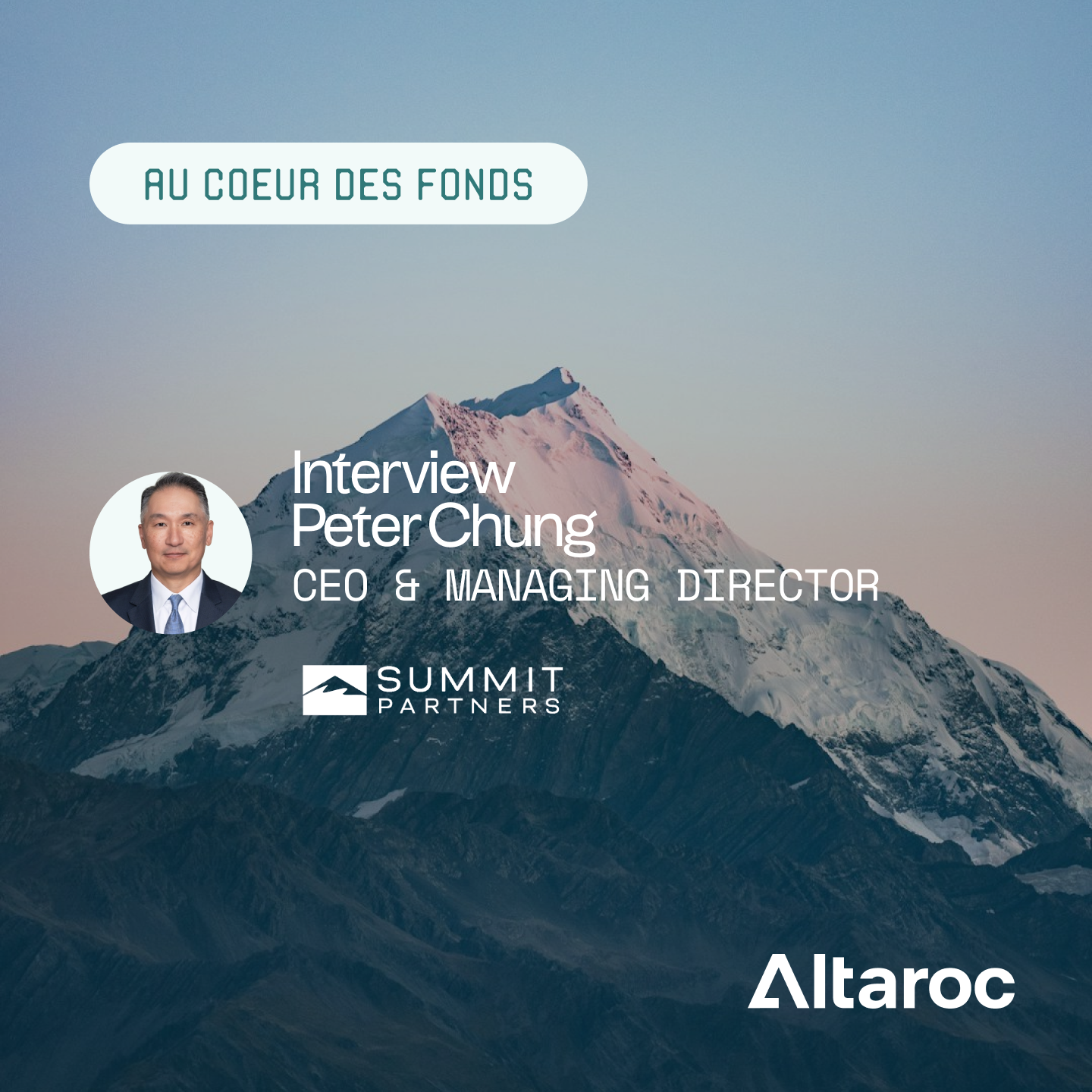The New Gen: Private Equity's new lease on life
In the sophisticated world of private banking, a silent but profound change is at work.
Long seen as a world of stability and transmission, wealth management is seeing the emergence of a generation of investors with radically new values.
These young heirs, entrepreneurs or independent investors - known as the " New Gen" - no longer see wealth as an end in itself, but as a means of impact and transformation.
By 2045, almost $80,000 billion is expected to change hands between generations. (Source: BCG EY Deloitte).
Never before has so much capital been passed on in such a short space of time. This is a direct consequence of the gradual decline of the "baby boomers", born between 1946 and 1964.
For private banks, this historic shift is not just a management issue: it's a paradigm shift.
For while wealth is being passed on, the banking relationship is being lost - often to younger, more digital players, more aligned with the values of the new generation.
The "New Gen" is not just younger: it's different.
It informs itself, compares and questions.
It wants to understand before subscribing, participate before investing, and give meaning before aiming for performance. Their relationship with finance is more emotional and committed.
For banks, the challenge goes beyond winning new customers: it's about preserving their legitimacy in a world where trust is earned through transparency and alignment of values. In Europe, almost 50% of private banking customers will be under 55 by 2030 (source: McKinsey - Future of Private Banking 2024), and generations Y and Z will control over 30% of the world's financial assets by 2025 (source: UBS Global Family Office Report 2024).
And in this context, private equity - a concrete, meaningful and long-term asset - is emerging as the preferred vector for this new relationship between capital and impact.
A new generation of investors: committed, connected and in search of meaning
The "New Gen" is distinguished above all by its vision of capital.
Where its elders sought preservation and transmission, it sees wealth as a tool for action. They want to invest to change, to build, to contribute.
Marked by climate crises, geopolitical upheavals and the digital revolution, this generation puts meaning before yield.
It favors impact investments, projects aligned with its convictions, and demands traceability in the use of its money.
Yield is no longer a goal, but a consequence of responsible allocation.
Digital natives want an interactive, fluid and transparent relationship with their private bank.
Digital tools are no longer accessories: they have become the norm.
Real-time reporting, collaborative investment platforms, visualization of the impact of one's investment - all levers that put the customer back at the heart of the system.
This generation, often globalized and entrepreneurial, thinks differently about risk.
They value controlled audacity, diversification and investment in tangible assets. Their relationship with performance is as much narrative as numerical: they want to understand the story behind the figures.
They are also better informed and more educated when it comes to the various financial products, which increases the level of demand for the expertise and added value of the private banker.
Private banking can no longer confine itself to wealth management.
It must educate, co-construct and even inspire.
The new expectations are clear.
- teaching about financial complexity.
- transparency on costs and governance .
- personalization of offers .
- and an embodiment of our stated values.
The "New Gen" no longer rewards prestige but consistency.
It chooses its partners as it chooses its causes: with rigor, sense and conviction.
Challenges for private banks: winning over and retaining the loyalty of the New Gen
For private banks, the challenge is not just to attract this clientele: it's to understand them and support them over the long term.
Gone are the days when loyalty was passed on with wealth.
Every succession becomes a fragile moment when the relationship can break down. For the record, 70% of heirs change their banking institution at the time of succession (Source Capgemini Wealth Report 2023).
Banks therefore need to anticipate: identify heirs, include them in the wealth management dialogue today, and offer them an active role in shaping their financial future.
Some banks are ahead of the game: Next Gen programs, entrepreneur clubs, training seminars in governance or philanthropy. These are all initiatives that create an emotional bond even before the commercial relationship.
But seducing is not enough: you have to rethink the relationship.
The "New Gen" no longer wants a vertical approach. They expect a horizontal, collaborative relationship. The banker is no longer simply an advisor, but a partner who understands the customer's expectations and values, and knows how to create opportunities for them. This evolution presupposes an internal transformation.
- train advisors in new communication codes and generational values.
- integrating diversity and youth into teams .
- investing in digitalization without sacrificing human proximity.
- and put the consulting mission back at the heart of the business.
- Loyalty is now built on experience: clear, fluid, authentic. Trust can no longer be decreed, it must be proven - through transparency, consistency and quality of expertise.
Innovating our offering: from asset management to value co-construction
Winning over the "New Gen" also requires product innovation.
Tomorrow's customers want more than just high-performance portfolios, they want investments that tell a story.
They want to choose their themes, modulate their allocations, and understand the logic behind each decision.
The most advanced banks are developing interactive co-investment platforms, thematic impact funds, or customized ESG mandates.
Digital technology now makes it possible to democratize access to previously inaccessible asset classes: private equity, private debt, green infrastructure.
Innovation is no longer limited to financial engineering: it lies in the ability to connect finance to economic and social reality.
Private banking thus becomes a place of learning, exchange and active collaboration.
And it is precisely at the crossroads of these expectations that Private Equity, an asset emblematic of concrete finance, stands at the forefront.
Private equity, driving the transformation of private banking
Private equity perfectly embodies the new equation between performance, impact and proximity. By investing in real companies, it links capital to the creation of industrial value.
It offers the "New Gen" the opportunity to see and understand where their money is going.
- An asset aligned with its values
Private equity allows you to invest in companies that are part of the ecological transition, social innovation or technological revolution.
It's an asset that reconciles profitability and responsibility, and values patience over speculation.
- A differentiating lever for banks
For banks, developing private equity is no longer an option, but a strategic necessity : it strengthens customer loyalty, attracts new profiles and gives new meaning to the private banker's mission.
Some banks have opened up access to digital club deals, sustainable thematic funds or exclusive co-investments: a new way of involving customers in the growth of the real economy.
- An educational challenge
But this shift cannot be made without educational support.
Young investors want to understand how unlisted companies operate, how valuation cycles work, what the risks are and how value is created.
Banks therefore need to tell the story of the companies they finance, provide visibility on their impact and put people back at the heart of performance.
- A catalyst for committed finance
By integrating private equity into their offerings, private banks are redefining their role: from asset managers to responsible investment partners.
They finance transitions, support entrepreneurs, and participate in the transformation of the economy.
Private equity thus becomes a common language between private banking and the New Gen: that of patient, committed and meaningful capital.
From inherited capital to committed capital
The "New Gen" is no longer simply looking to inherit wealth, but feels invested with a mission. For them, wealth is no longer a simple possession: it's a responsibility.
As a result, private banks can no longer simply manage assets; they must support an intention. This implies a redefinition of their value proposition : a more partnership-based relationship between banker and customer, an enriched offer of alternative assets and digital services, and a culture focused on impact.
This paradigm shift must also be embodied internally : through new generations of advisors, hybrid profiles between finance and technology, and a vision aligning performance and meaning.
In this transformation, private equity is emerging as a lever for renewal : it reconciles return and impact, proximity and long-term vision.
The "New Gen" is not breaking with the tradition of wealth, but reinventing its purpose. Private equity is a concrete expression of this: patient capital, committed to the long term, at the service of sustainable value creation and a more responsible future.
Question1: Virginie, you've been supporting companies in their transformation for many years now, and more specifically private banks. Could you describe your expertise more specifically?
I'm a Partner in organization and management consulting, and for almost 10 years I've had the good fortune to work with a wide variety of private banks: from major French groups to international pure players, from historic houses to players in the midst of reinvention. My role is to help them transform their business model in response to market trends and new customer expectations. In concrete terms, I'm involved in three main types of mission: defining digitalization strategies and redesigning customer paths, challenging and steering strategic plans for the HNI and UHNWI segments, and supporting organizational and cultural transformations. I've also had the opportunity to work on conquering young millionaires, an audience aged between 25 and 40 that requires a complete rethink of the offer, the experience and the discourse. It's on this type of assignment that we really get to grips with the depth of the generation gap - and the urgent need for private banks to reinvent themselves.
Question 2: How do you see the relationship between the New Gen (Generation Y and Z) and finance?
When we talk about New Gen, we must first distinguish between two profiles: heirs and first-generation entrepreneurs of great fortune, often from the tech sector. Entrepreneurs are really the archetype of what I'm about to describe. Heirs, on the other hand, are sometimes less archetypal - they sometimes resemble their parents more than one might think, notably in their need for relational continuity and their attachment to the house that accompanied their family. But overall, the New Gen has a relationship with finance that is both more pragmatic and more demanding. They are much less impressed by the banking institution than their parents. They don't make the banking relationship sacred: they test it, compare it, question it. What changes fundamentally is the need for meaning and transparency. These generations want to understand where their money goes, how it works, what impact it has. They no longer separate financial performance and social responsibility. Investment becomes an act that must be consistent with their values. Another key dimension: digital is not an option, it's a given. They want to access information in real time, simulate, visualize and interact. But digital does not mean dehumanized. They expect a hybrid relationship: fluid technologically, but embodied humanly. Finally, they have a different relationship to risk. They are less risk-averse when it comes to certain assets - private equity, crypto, impact investing - but much more demanding when it comes to clarity and governance. They want to be players, not just beneficiaries.
Question 3: The challenge of winning over and retaining the loyalty of the new generation has been clearly identified by the major Private Banks. However, the subject remains complex to address. In your opinion, what are the obstacles to this adaptation?
Banks are well aware of the New Gen challenge. But there's a big gap between awareness and actual transformation. First, there's a profound culture shock. Private banks were built on codes of excellence, verticality and discretion. Yet the New Gen expects horizontality, transparency and dialogue. It's not just a question of tools: it's a cultural change. Secondly, the inertia of organizations. Processes, information systems, pricing grids... everything has been designed for a classic wealth management clientele. Adapting the organization to younger, more volatile, more demanding profiles requires heavy investment and an agility that large structures struggle to deploy. There is also an internal generational challenge. Private bankers are technically excellent, but not always at ease with the codes of the New Gen. Training, changing attitudes, integrating young talent... this is an in-depth HR project. At Neuflize, we spent 4 years developing our working methods and managerial attitudes. Finally, there's a tension between the short term and the long term. Winning over the New Gen means investing now for revenues in 5 or 10 years' time. In a context of pressure on margins, some establishments are reluctant to mobilize resources on a target that does not yet generate immediate profitability. The real challenge is to transform without losing one's DNA. And that requires humility, a willingness to listen, and a real commitment to change at the highest levels of governance.
Question 4: In terms of product innovation, what do you think of the move by banks to enrich their range with alternative assets and private equity?
In my opinion, this is one of the most relevant developments to meet the expectations of the New Gen. Private Equity ticks all the right boxes:
Concrete: we invest in real companies, not abstract financial products
Meaning: we can choose themes (ecological transition, health, inclusion...) and measure the impact
Long-term performance, consistent with a responsible wealth vision
Education: private equity means telling a story, explaining value creation, involving investors
Banks that open up access to unlisted companies, create deal clubs, enable the co-construction of thematic portfolios, etc., are not only enriching their offer: they are redefining their role. They are becoming facilitators of access to the real economy. But beware: it is not enough to add a "Private Equity" line to the catalog. We need to rethink the entire value chain. This is what I've observed in my benchmarking and transformation assignments: advisors need to be trained to explain these assets in a pedagogical way, andaccessible formats need to be created: webinars, investment clubs, company visits, guaranteeing transparency on fees, governance, risks,telling the story of the companies financed and being able tomeasure and communicate on impact in a tangible way When I worked on conquering young millionaires with designers at a major French bank, one of the most popular concepts was precisely privileged access to impact investments, with a learning and community dimension.Private equity can become a powerful lever for differentiation and loyalty... provided that it is supported by a genuine transformation of the advisory model. Otherwise, it will remain just another product in an already saturated offering.
Would you like to find out more? Make an appointment with Isabelle.
Warning:
This article is purely informative and does not constitute a personalized recommendation, legal or tax advice or an investment strategy.
The information presented is based on current conditions and is subject to change. You are invited to contact your advisor to ensure that the products mentioned are suited to your asset profile.
Investing in private equity entails risks of capital loss and liquidity. The performance of an FIA is never guaranteed; it depends on the profitability of the assets in the portfolio. Past performance is no guarantee of future performance.






